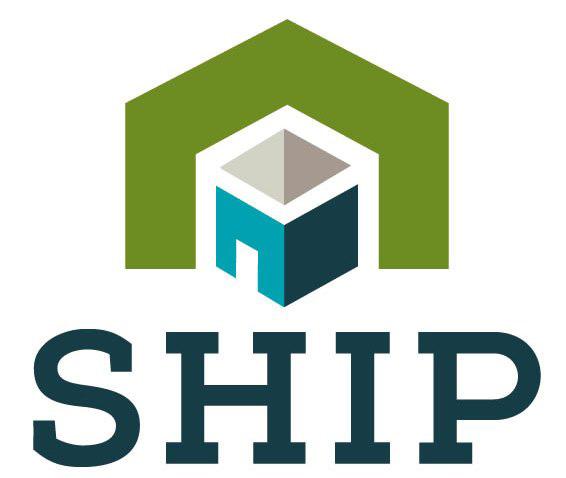
5 minute read
Frequently Asked SHIP Questions
State Housing Initiatives Partnership Program
MICHAEL CHANEY
Advertisement
QUESTION: Is it permissible to provide SHIP rehabilitation assistance for a home that is owned by a living trust and is listed as such on the property records? This is the applicant’s trust, but she is not listed on the property record, although it is homesteaded.
ANSWER: At 24 CFR 92.254(c)(3) of the federal regulations, HUD allows living trusts, also called inter vivos trusts, as proof of ownership for owner-occupied rehabilitation programs. SHIP follows this same guidance. For SHIP rehabilitation assistance, a local government can assist a home owned by a living trust, also called an inter vivos trust, where the applicant can show they have legal authority to enter into a mortgage on the property and all beneficiaries of the trust qualify as an income-eligible family and occupy the property as their principal residence (except that contingent beneficiaries, who receive no benefit from the trust nor have any control over the trust assets until the beneficiary is deceased, need not be SHIP income eligible). The trust must be valid and enforceable and ensure that each beneficiary has the legal right to occupy the property for the remainder of his or her life.
Obtain a copy of the Trust Agreement and make sure the applicant or applicant’s co-signer has the authority to enter into a mortgage for the property. Check to see who the beneficiaries are under the trust. To be eligible for SHIP assistance, such applicants must be the current beneficiary and make the home their principal residence.
QUESTION: Is the payment of real estate taxes an eligible expense under the SHIP program? If so, what are scenarios in which paying taxes is appropriate?
ANSWER: There is no prohibition on paying real estate taxes in the SHIP program. The topic is not specifically addressed in the SHIP Statute or Rule. Several communities have paid taxes with SHIP funds. Some SHIP communities offer foreclosure prevention assistance, paying one or more months of mortgage payments. A portion of the mortgage pays for property taxes, and this is an eligible SHIP expense.
QUESTION: We have a rehabilitation client with a reverse mortgage on her home. Is it permissible to provide assistance in such a scenario?
ANSWER: Providing rehabilitation or other SHIP assistance to a homeowner with a reverse mortgage is a local decision, but such applicants may be eligible for SHIP assistance.
One consideration involves income eligibility. If the funds are a lump sum that is drawn down and deposited in an account, count it as an asset. The case is different if funds are being received monthly. The federal definition of income in 24 CFR 5.609(b)(3) states that income includes interest, dividends, and other net income of any kind from real or personal property, so monthly funds received from a reverse mortgage must be counted as income.
A local government may provide rehabilitation assistance to an eligible household with a reverse mortgage. It is likely that your SHIP program will not recoup the SHIP assistance invested in the property if it is sold. Also, check with the lender to learn if the reverse mortgage prohibits the placement of a second mortgage on the property. To determine, please get counsel from legal staff when reviewing the terms of the recorded mortgage.
QUESTION: For one of our rehabilitation projects, the lowest bid for roofing was $4,500 above the maximum SHIP award allowed in our LHAP. The client has a family member who will donate the $4,500 so that the SHIP award may pay the rest. Is this approach allowable?
ANSWER: First, consider if it is time for your city or county commissioners to revise your strategy to increase the maximum award amount. Several communities have recently done this, considering the rising cost of materials and labor. The SHIP program does not prohibit an owner from contributing towards repairs, and this may be a proper solution in some scenarios. Not only is an owner contribution not prohibited by the program, but some SHIP communities include in their LHAP rehabilitation strategy a required owner contribution. Although there are a few ways to approach this, the goal is always to ensure that the owner’s contribution is available when needed for paying the repair contractor. Once an eligible applicant proves they have their repair contribution, these funds should be secured so they cannot be spent for anything else before it is time to pay the contractor. Consider these two approaches: v Option One: The owner gives the SHIP office a check for the amount of the repair contribution. This amount is held in an escrow account. The first payment to the contractor comes from these funds and then SHIP funds pay for the remainder of the repairs. v Option Two: To avoid placing funds in escrow, the owner may provide the SHIP office with a cashier’s check or money order for the repair contribution. Staff will hold the check in the file until the payment is due to the contractor.
To document your SHIP file, include a copy of the homeowner’s check as well as all the SHIP payments, release of lien, and inspection forms.
QUESTION: If an applicant has a GoFundMe account in his or her name, should housing administrators count this as an asset?
ANSWER: The Florida Housing Finance Corporation has provided guidance on this topic. A GoFundMe account is only counted as an asset if funds have been deposited into a checking or savings account. Housing administrators must monitor the amount of money in a GoFundMe account. If the GoFundMe account plus the household’s other assets total $5,000 or greater, an applicant is required to transfer the GoFundMe account funds into a checking or savings account to impute asset income.

QUESTION: We have a household that is receiving assistance for SHIP replacement housing strategy and has been in the works for two years. Do we need to re-certify this household for income eligibility for them to remain qualified?
ANSWER: Once a case is income certified as eligible, this certification is valid for one year. The local government has one year of time to record the loan documents and start the work. Work has begun on the case in question and the mortgage and loan documents are recorded. For this reason, there is no need to reverify or recertify the applicant again, regardless of how long it takes to provide homeownership assistance. Once the mortgage is recorded, it does not matter if they go over income for whatever reason. At that point, the local government must move forward with the assistance regardless of changes in household size or income.
In the wake of the devastation to the State of Florida from recent natural disasters, disaster relief resources and information for SHIP Administrators are being made available by the Florida Housing Finance Corporation as they continue to work with state and federal officials. Visit Florida Housing Finance Corporation’s Disaster Relief Resources page to find available resources to assist you or those you know with recovery efforts. https://floridahousing.org/programs/special-programs/ship---state-housing-initiatives-partnership-program/disaster-relief
Michael Chaney is a Technical Advisor for the Florida Housing Coalition with 27 years of experience providing technical assistance. Chaney co-wrote the Coalition’s Disaster Preparedness Manual and has assisted the statewide network of SHIP administrators with disaster response, first during the 2004 hurricane season and most recently in response to Hurricanes Ian, Nicole, Irma, Matthew, Hermine and Sally. Michael has offered foreclosure prevention training and has served as a Neighborworks instructor for Florida-based 5-day certification trainings for housing counselors. Mr. Chaney holds a bachelor’s degree from Loyola University in New Orleans and a masters of Social Work Administration from Florida State University, where he has served as an adjunct faculty member of the housing department.







